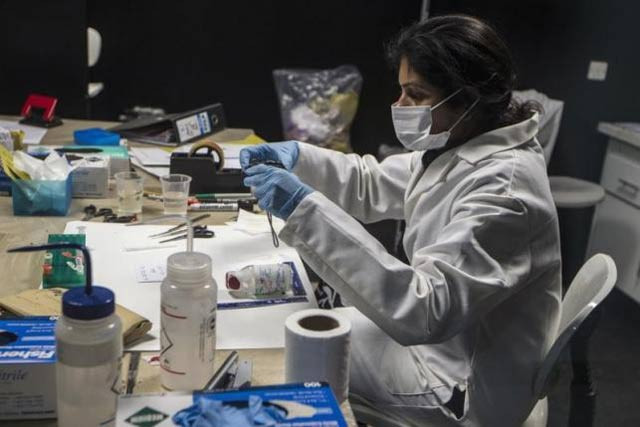KU sets up first centre for training in forensic science
Facility to help LEAs in judicial, criminal justice system efficiency

Facility to help LEAs in judicial, criminal justice system efficiency. PHOTO: REUTERS
KU took the initiative of establishing CDFST to help train personnel of law enforcement agencies (LEAs) and to improve the criminal justice system. It is the first university to set up a centre for forensic training on campus.
New dept set up at KU with aid worth $1.9m
Khan congratulated KU's administration for establishing a centre in the field of digital forensic science and technology despite facing difficulties in funding.
"CDFST will definitely play its role as one of the paving components of the rule of law and help in judicial efficiency by providing technical evidence," said Khan, adding that CDFST laboratories will start fingerprint and DNA sequencing by next year.
Furthermore, Khan appreciated the role of the army and LEAs. He said that the army deserves applause on the recovery of Owais Ali Shah, the son of the Sindh High Court chief justice. "Karachi operation will continue as it has been successful so far and no compromise will be made in this regard," he added.
Answering KU vice-chancellor Dr Muhammad Qaiser's request for funding, Khan said he will approach the federal and provincial governments and involve the private sector to help KU financially.
Dr Qaiser was of the view that training in digital forensic education is of prime importance for the development of the nation.
Pakistani universities fail to make mark in Asia's best university ranking
"Being the first-of-its-kind centre, the establishment of CDFST is a milestone for KU," Qasier said. He said it [CDFST] will help in providing impartial scientific opinion based on digital evidence, adding that the institute will be named after the governor. "It was Khan's vision and idea to establish the institute," he explained.
KU will be offering digital forensic education at undergraduate, graduate and postgraduate levels. "The programme, that includes computer forensic, mobile forensic and network forensic,
will start certified courses in the beginning," KU management and administrative sciences dean Dr Khalid Iraqi told The Express Tribune, adding that it will be a 3-month course with a capacity of 30 candidates.
The fee and course outline of the programme has not been decided yet, while the centre is not for commercial purposes, said Iraqi, adding that candidates from all over Pakistan may apply for the courses.
CDFST will provide support to LEAs including, the police, Rangers, Federal Investigation Agency, National Accountability Bureau (NAB), Citizen-Police Liaison Committee (CPLC) and to the banking sector, Iraqi informed.
The centre has been established with KU's funds and the building, renovation and equipment, that includes furniture and computer projectors, cost Rs3million.
It has been setup in the Sardar Yasin Malik centre, who termed it as the dire need of today's world. "Forensic science must be utilised in order to curb the high crime rate of the country," said Malik.
To support the LEAs, Sindh CPLC chief Muhammad Zubair Habib, Rangers deputy director-general Brig Muhammad Azhar, NAB Karachi director-general Colonel Siraj Naeem, deans of all faculties, chairpersons of departments and faculty members were present at the inauguration ceremony.
Published in The Express Tribune, July 20th, 2016.



















COMMENTS
Comments are moderated and generally will be posted if they are on-topic and not abusive.
For more information, please see our Comments FAQ